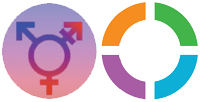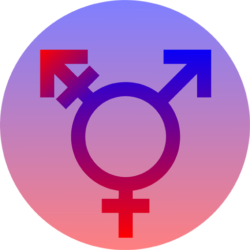Vist 99 gange.
Dateret den 2. november 2010 har LGBT Danmark og Trans-Danmark i f√¶llesskab indsendt skrivelse med bem√¶rkninger direkte til FN Human Rights med kopi til Udenrigsministeriet om foreningernes syn p√• menneskerettighedsforholdene i Danmark i forbindelse med den periodiske bed√łmmelse hos FN om Danmarks efterlevelse af menneskerettighederne – Universal Periodic Review – UPR.
Den f√¶lles skrivelse kom i stand efter forslag fra S√łren Laursen.
At skrivelsen kan sendes direkte til FN skyldes, at LGBT Danmark af FN har status som Non Governmental Organisation – NGO. [a]
I skrivelsen, der er p√• engelsk, henvises bl.a. til Yogyakarta principperne, til FN erkl√¶ring om menneskerettigheder, seksuel orientering og k√łnsidentitet fremsat p√• vegne af 66 nationer fra fem kontinenter – heriblandt Danmark og de √łvrige EU-lande, til Thomas Hammarbergs rapport af 29. juli 2009, til rapporten af 5. februar 2010 fra FN’s udvalg til afskaffelse af diskrimination imod kvinder i Holland.
- Danmark kr√¶ver hormonel eller k√łnsskifteoperation som betingelse for godkendelse af k√łnsskifte,
- Danmark kun tillader selvvalgt fornavn efter godkendelse fra Sexologisk Klinik,
- Danmark kun tillader “X” i pas som k√łnsbetegnelse efter godkendelse fra Sexologisk Klinik,
- det danske CPR-system anvender k√łnsbestemte endetal i personnumrene,
- den danske lovgivning er upr√¶cis ved ikke specifikt at anf√łre k√łnsidentitet som grund til, at der ikke m√• ud√łves diskrimination,
- det er forkert, at k√łnsidentitet i flere love er henf√łrt under enten seksuel orientering eller k√łn.
- Desuden indeholder skrivelsen et afsnit om problemer for b√łrn af homoseksuelle for√¶ldre.
Det anbefales i skrivelsen, at Danmark retter op p√• de anf√łrte forhold.
Herunder gengives skrivelsen i sin helhed.
 Submission to the United Nations Human Rights Council for its
Submission to the United Nations Human Rights Council for its
Universal Periodic Review of Denmark
This information is submitted on behalf of
- LGBT Denmark – The Danish National Organisation for Gay Men,Lesbians, Bisexuals and Transgendered Persons [1]
- Trans-Danmark – Danish National Association of Transvestites and Transsexuals
in the framework of the Universal Periodic Review [2].
We note,
Persons of diverse sexual orientations and gender identities shall enjoy legal capacity in all aspects of life. Each person’s self-defined sexual orientation and gender identity is integral to their personality and is one of the most basic aspects of self-determination, dignity and freedom. No one shall be forced to undergo medical procedures, including sex reassignment surgery, sterilisation or hormonal therapy, as a requirement for legal recognition of their gender identity. […]” (Principle 3)
That the statement on human rights in regards to sexual orientation and gender identity in the UN General Assembly [4] was signed by 66 states including Denmark.
That Denmark has ratified the Convention on the Rights of the Child.
That Council of Europe Commissioner for Human Rights has criticized member countries [5] for insufficient procedures for legal recognition of preferred gender: “Despite ample case law from the European Court of Human Rights in favour of recognition, legal recognition remains a challenging process for many transgender persons in the Council of Europe member states”.
That the CEDAW committee similarly has recognized the rights and criticized the conditions for legal recognition of preferred gender [6].
Children of same-sex couples
Citizenship
We find it problematic that the gender of the parents determines, if a child gets Danish citizenship or not. If a foreign woman gives birth to a child in Denmark, then if her partner is a Danish man the child gets Danish citizenship but not if her partner is a Danish woman.
In the latter case the child can get Danish citizenship only by naturalisation.
The reason is that the legal status of children of heterosexual couples is determined in the Children’s Act whereas the parenthood of the co-parenthood in a same-sex couple is established by means of second-parent adoption, i.e. in the Adoption Act. Thus, although the recognition of parenting of same-sex couples has improved over the years there is still a significant distinction in family law between children of same-sex couples and other children.
We consider it not being in the best interests of the child, that its Danish citizenship is not recognized from the birth as for other children.
Non-discrimination
Furthermore there is a thorough lack of recognition of same-sex couples with children in the administrative practices in all areas concerning children, e.g. registration systems for pregnant women, registration forms for childbirth, and application forms for child care.
Ignoring the diversity of families with children results in discrimination of children of samesex
parents.
Recognition of gender identity
Legal recognition of gender identity
Denmark requires hormonal or surgical sex reassignment before legal recognition of gender identity is possible. This is not compatible with human rights provisions on recognition before the law.
Furthermore the access to choose ones name is restricted in regard to the gender the name specifies [7]. To get access to a name of the gender opposite to ones biological sex one has to submit to an assessment at Sexological Clinic, Rigshospitalet University Hospital, and only when diagnosed at the clinic (as transsexual or completely comparable to transsexual) a name change is possible.
The same rules apply for having an “X” as the gender designation in ones passport [8].
Right to privacy
All persons living in Denmark are registered in the Danish Civil Registration System. Each individual has an identification number, the cpr number. The number uniquely identifies a person, but at the same time it shows the date of birth and the gender: Even numbers for women, odd numbers for men. As the number is used throughout public administration and even private companies, this is a severe breach of the right to privacy in regard to gender identity. Furthermore the registration system actually contains information on gender separately. There is no justification for exposing the gender in the identification number [9].
Non-discrimination
It should be mentioned, that Danish law and administration suffer from lack of precision and consistency by not recognising gender identity as a ground for discrimination. Rather cases concerning gender identity are treated in scope of either sexual orientation or gender, which is wrong [10]. Considering that discrimination on grounds of gender identity is eminent [11] it is highly problematic it is not directly addressed in the legislation and administrative practice.
Recommendations
We recommend
That all necessary legislative, administrative and other measures are taken to ensure that no person is discriminated on the basis of gender identity or sexual orientation.
Specifically
That Denmark amends the Children’s Act to reflect the diversity of families and thus to ensure equal rights to all children born in Denmark.
That Denmark adjusts the laws regarding legal recognition of preferred gender to comply with recommendations from human rights bodies. This includes legal recognition of gender without sex reassignment, freedom to take a name of own choice regardless of gender indicated by the name, and freedom to decide to have an “X” as gender specification in the passport.
That Denmark ends the use of gender identifying person numbers.
That Denmark recognises gender identity as a ground for discrimination.
02-11-2010
LGBT Denmark
HC Seidelin
Chairperson
www.lgbt.dk
Trans-Danmark
Karin Astrup
President
- [Retur] LGBT Denmark is an NGO in special consultative status with the economic and social council of the United Nations
- [Retur] Correspondence concerning this submission is to be addressed to S√łren Laursen, sla@lgbt.dk, Postbox 1023, 1007 Copenhagen K
- [Retur] Yogyakarta Principles on the Application of International Human Rights Law in relation to Sexual Orientation and Gender Identity
http://yogyakartaprinciples.org/ - [Retur] UN General Assembly, Annex 2008, A/63/635
(http://daccess-ods.un.org/access.nsf/Get?OpenAgent&DS=A/63/635&Lang=E) - [Retur] Strasbourg, 29 July 2009, CommDH/IssuePaper(2009)2: Human Rights and Gender Identity, Issue Paper by Thomas Hammarberg, Council of Europe Commissioner for Human Rights (sec. 3.2)
(https://wcd.coe.int/wcd/ViewDoc.jsp?id=1476365) - [Retur] United Nations, Forty-fifth session, 18 January-5 February 2010, Concluding observations of the Committee on the Elimination of Discrimination against Women, The Netherlands
(http://www2.ohchr.org/english/bodies/cedaw/docs/co/CEDAW-C-NLD-CO-5.pdf) - [Retur] Name law, Law no. 524 of 24/06/2005, amended by Law no. 350 af 06/05/2009
- [Retur] Pasbekendtg√łrelse (executive order) no. 1003 of 06/10/2006, and no. 931 of 15/07/2010
- [Retur] See 2007-08 (II) B 65, annex 5 and 10, Parliamentary Decision on transgender rights (in Danish)
- [Retur] LGBT Denmark, The Little Green Book on LGBT
Linket til var til LGBT Danmark, hvor den imidlertid ikke mere findes.
Den lille gr√łnne om LGBT findes derimod p√• dansk hos Panbloggen. [Den 9. februar 2020.. Tina Thranesen] - [Retur] Equal and Unequal, The living conditions and wellbeing of gay and lesbian people, bisexuals and transgenders in Denmark, CASA. Siden findes ikke mere p√• den oprindelige adresse, men kan findes her: https://www.transviden.dk/artikler/Equal-and-unequal.pdf.
Fællesskrivelsen i pdf-format.
- [Retur] Non Governmental Organisation РNGO Рer en særlig godkendelse fra FN til foreninger og organisationer og betyder, at de får konsultativ status og dermed direkte adgang til at udtale sig og påvirke beslutningsprocessen i FN.
Den 11. december 2006 tildelte FN NGO status til LGBT Danmark.
Ved at kunne sende bemærkninger direkte til FN sikres, at FN Human Rights bliver bekendt med foreningernes holdning.
Foreninger og organisationer, der ikke har NGO status er henvist til at sende deres bem√¶rkninger til Udenrigsministeriet. Der er imidlertid ikke sikkerhed for, at bem√¶rkninger eller alle bem√¶rkninger kommer med i den endelige skrivelse, som Danmark skal sende til FN Human Rights, idet denne h√łjest m√• v√¶re p√• 20 sider.
